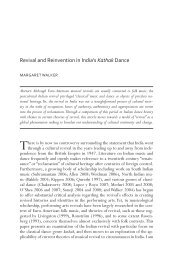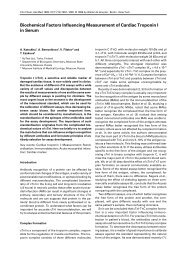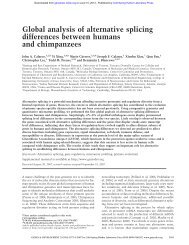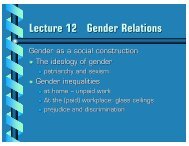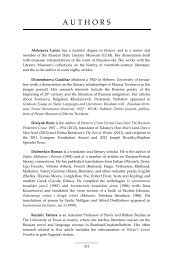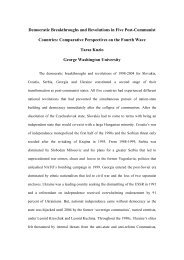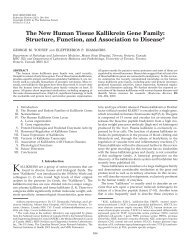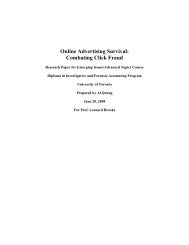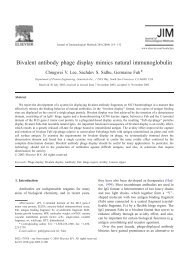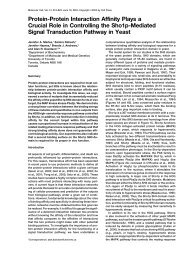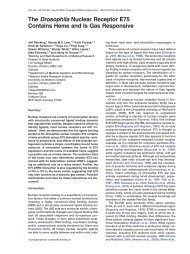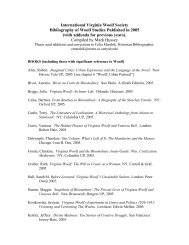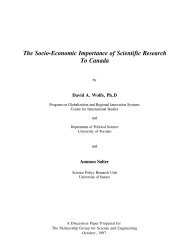Messages in the Media - University of Toronto
Messages in the Media - University of Toronto
Messages in the Media - University of Toronto
You also want an ePaper? Increase the reach of your titles
YUMPU automatically turns print PDFs into web optimized ePapers that Google loves.
that many articles discussed whe<strong>the</strong>r recogniz<strong>in</strong>g Kosovo<br />
would be a condition for receiv<strong>in</strong>g candidate status or for<br />
jo<strong>in</strong><strong>in</strong>g <strong>the</strong> EU. The large amount <strong>of</strong> articles written on this<br />
debate po<strong>in</strong>t to <strong>the</strong> fears <strong>of</strong> <strong>the</strong> public that <strong>the</strong>y may have to<br />
eventually choose between one or <strong>the</strong> o<strong>the</strong>r and that <strong>the</strong><br />
current policy <strong>of</strong> pursu<strong>in</strong>g both may not be viable <strong>in</strong> <strong>the</strong><br />
long run.<br />
Apart from <strong>the</strong> domestic issues, <strong>the</strong> major <strong>in</strong>ternational<br />
topic relevant to Serbia's relationship with <strong>the</strong> EU<br />
that has received coverage has been <strong>the</strong> Eurozone crisis. As<br />
with <strong>the</strong> media <strong>of</strong> many countries, <strong>the</strong> reports cover<strong>in</strong>g this<br />
topic have been generally negative. This has led to some<br />
articles analyz<strong>in</strong>g <strong>the</strong> implications <strong>of</strong> <strong>the</strong> crisis for Serbia's<br />
economy, but also, <strong>the</strong> implications it may have on EU enlargement.<br />
One <strong>in</strong>terest<strong>in</strong>g trend is that many articles have<br />
dealt specifically with <strong>the</strong> role <strong>of</strong> Germany <strong>in</strong> <strong>the</strong> Eurozone<br />
crisis and its attempts to solve it. This trend is not just isolated<br />
to <strong>the</strong> issue <strong>of</strong> <strong>the</strong> crisis but is also noticeable <strong>in</strong> <strong>the</strong><br />
o<strong>the</strong>r two categories. For example, when Serbia did not receive<br />
candidate status on 9 December, many articles<br />
po<strong>in</strong>ted to <strong>the</strong> fact that <strong>the</strong> ma<strong>in</strong> countries that opposed <strong>the</strong><br />
action were Germany and Austria. This trend reveals <strong>the</strong><br />
recognition <strong>in</strong> <strong>the</strong> media that Germany is largely responsible<br />
for Serbia's future with<strong>in</strong> <strong>the</strong> EU. As such, <strong>the</strong>re have<br />
been h<strong>in</strong>ts <strong>of</strong> slight suspicion <strong>in</strong> <strong>the</strong> media towards Germany,<br />
such as an article discuss<strong>in</strong>g how <strong>the</strong> German economy<br />
has cont<strong>in</strong>ued to grow despite <strong>the</strong> crisis, even suggest<strong>in</strong>g<br />
that <strong>the</strong>y have pr<strong>of</strong>ited from a weak euro. 38 It must be mentioned<br />
however, that evidence <strong>of</strong> such suspicion is m<strong>in</strong>imal.<br />
174



